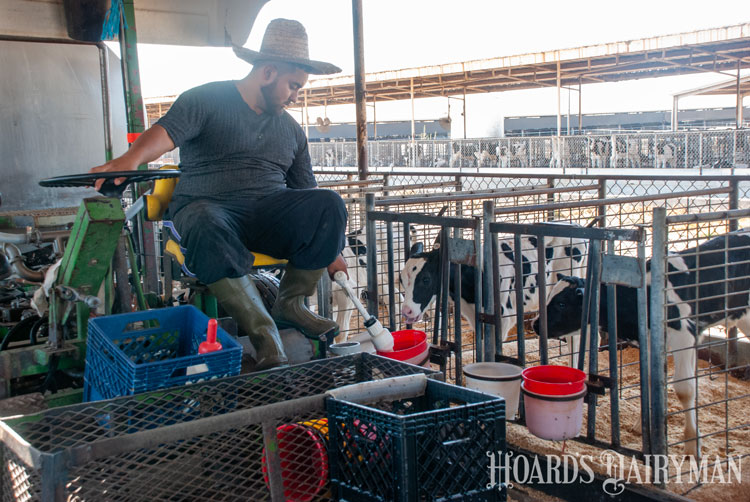
Hispanic and Latino farmworkers in the U.S. face health risks at a higher rate than their non-Hispanic or Latino coworkers. This is because, on top of hazards that accompany farm labor in general, these populations face additional stressors, such as a lack of education, lower wages, and language barriers.
This disparity in quality of life for over half of America’s agricultural workforce is something Elena Valez of Community Restorative Training (CRT) hopes to change. On an episode of the podcast Talking Total Farm Health, Valez described the purpose behind developing CRT and how she envisioned it reshaping the way Hispanic and Latino farmworkers approach not just their jobs, but their whole self, and their futures, too.
Valez started out as a health care interpreter, serving as a voice for both doctors and patients. In this role, she could not legally give medical or wellness advice, despite having 18 years of experience in restorative health. Thus, she sought a way to be able to share her knowledge and help better the lives of the patients she saw suffering in the California Bay Area and beyond. In January of 2020, months before the COVID-19 pandemic and quarantine that would spawn its own host of health crises, she launched CRT.
Valez called her approach a “soup” made of ingredients that cultivate a healthy mind and body. These ingredients include diaphragmatic breathing, monitoring sleep, eating well, and consistent movement. Her model centers around teaching Hispanic farmworkers how to be proactive in their daily lives and to address — and even prevent — health issues.
Valez herself immigrated from Colombia, where, as she shared, there was a widespread lack of opportunity. But the search for new roots, for some, means new troubles, too. Given the hard-working culture of many Hispanic communities — incurred partly by a perpetual state of survival mode — it is common for individuals to suppress pain in the interest of enduring.
Because of this resilient work ethic, both physical and mental health is likely to be left unaddressed, but while physical ailments pose a threat to workability and well-being, emotional pain can be even more pervasive, because there is still stigma in some communities around visiting a therapist or psychiatrist. For this reason, mental health is a key area needing attention.
Valez’s CRT emphasizes movement, nutrition, self-awareness, and forming positive habits, all of which directly impact mental health and, concurrently, physical well-being. Incorporating such practices into regular routines may collectively make a difference in the individual lives of workers suffering from discomfort of all kinds.
“Life is short. It’s not worth it to live it in pain,” Valez said.
“Managing pain is not forgetting about it,” she added. “We need to defy the depression pain is causing us. We are stronger than that.”
Moving from survival mode to proactive prevention is far from easy or immediate. But it’s something that with time can develop into a practice promoting longevity and, Valez hopes, a higher quality of life over all.
Valez always makes sure her training groups are aware of the 9-8-8 suicide prevention hotline, too. “Resources aren’t resources if people don’t know they exist.”
Further information about Valez and CRT can be found at https://crt-eco.org/home.








